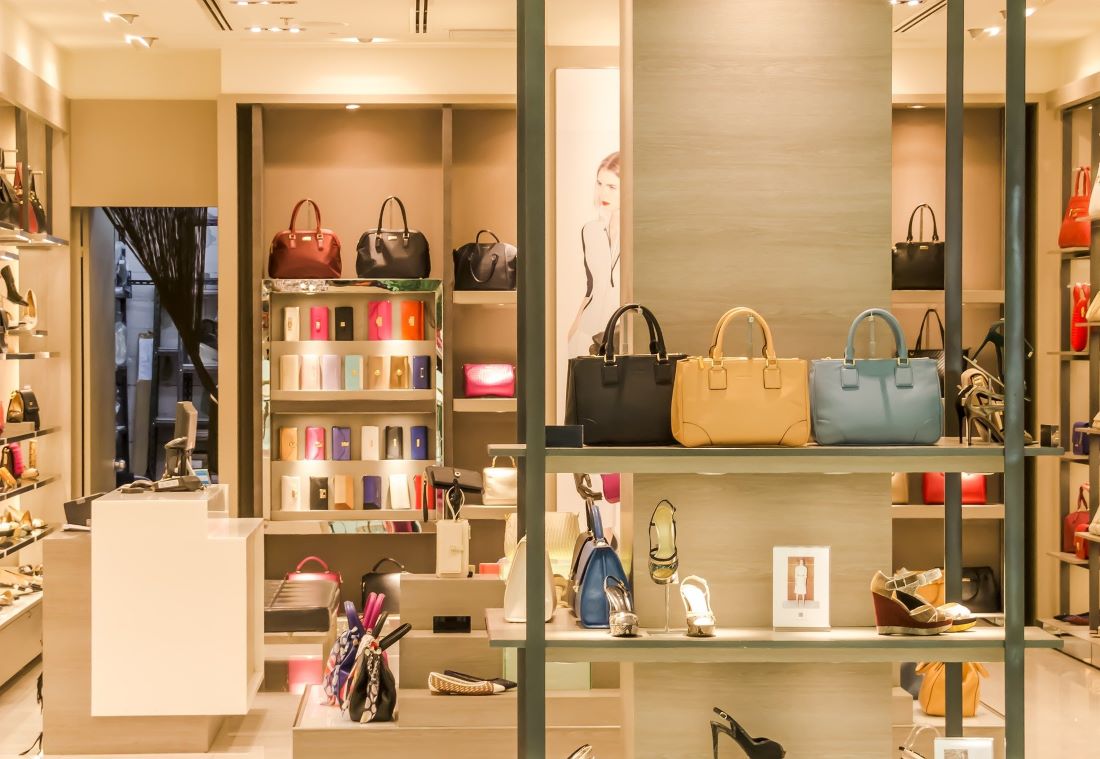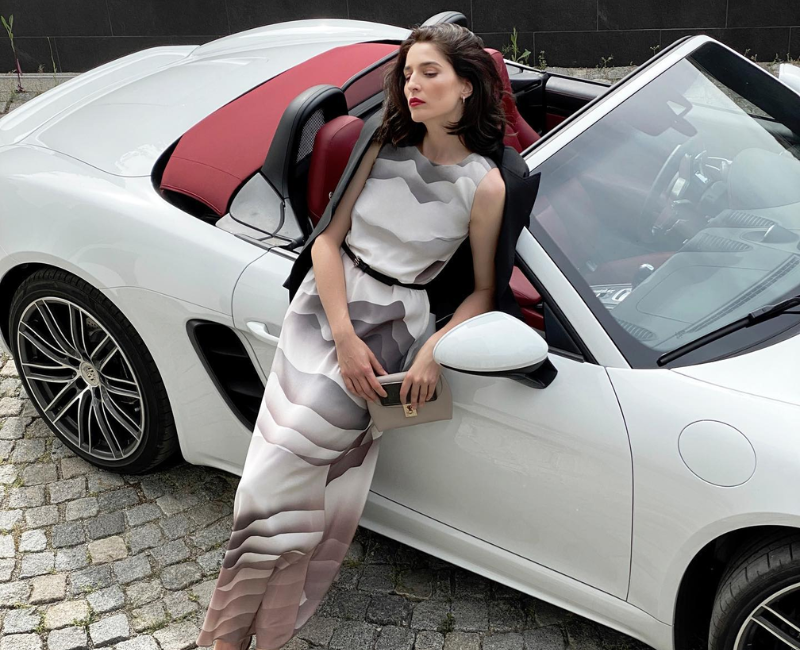The 8-Minute Rule for The Designer Warehouse South Africa
The 8-Minute Rule for The Designer Warehouse South Africa
Blog Article
The 20-Second Trick For The Designer Warehouse South Africa
Table of ContentsExamine This Report about The Designer Warehouse South AfricaThe Main Principles Of The Designer Warehouse South Africa 9 Simple Techniques For The Designer Warehouse South AfricaIndicators on The Designer Warehouse South Africa You Need To KnowThe Greatest Guide To The Designer Warehouse South AfricaThe The Designer Warehouse South Africa PDFsGetting My The Designer Warehouse South Africa To WorkGet This Report about The Designer Warehouse South Africa
With the surge of e-commerce and the altering choices of consumers, it is essential to discover the different point of views on what the future holds for for deluxe products. 1. The increase of shopping The surge of shopping has actually been a game-changer for the retail market, including duty-free shopping. Many are now providing their products online, which allows customers to go shopping from the convenience of their very own homes.Duty-free stores have actually likewise adjusted to this fad by offering their items online, making it less complicated for consumers to purchase prior to they also leave their home nation. Lots of customers are currently looking for one-of-a-kind and customized experiences when shopping for luxury items.
Some duty-free shops supply to their clients, where a personal customer will aid them find. The relevance of price Cost is still a major variable when it comes to purchasing high-end goods, and duty-free buying is still one of the most budget friendly ways to acquire.
The Ultimate Guide To The Designer Warehouse South Africa
Nonetheless, it is very important to keep in mind that not all duty-free stores supply the very same prices. Clients need to contrast rates throughout to ensure they are obtaining the ideal bargain. 4. The future of The future of duty-free looking for deluxe items is most likely to be a mix of physical and on-line purchasing experiences.
Duty-free shops will certainly need to proceed to adjust to the altering choices of customers by offering and. The Designer Warehouse South Africa. The future of duty-free looking for high-end items is likely to be a combination of physical and online shopping experiences. Duty-free shops will certainly need to remain to adapt to the changing choices of consumers by offering and competitive rates

The Buzz on The Designer Warehouse South Africa
In the 1980s and 1990s, high-end brand names started to widen their consumer base by offering more budget-friendly items. These brands offered items that were still taken into consideration extravagant, but at a much more reasonable price.
Plus, devices, unlike specialized knitwear or cashmere layers, can be made use of daily, justifying the purchase. Moreover, high-end brands often outsource the production of accessories, such as eyewear and phone situations, to third-party makers like Luxottica and Casetify. These professional 3rd parties can produce these devices at a lower price than internal manufacturing.
This business model makes accessories incredibly profitable for deluxe brand names. Luxury brands make a considerable earnings from accessories.
Some Ideas on The Designer Warehouse South Africa You Need To Know
Furthermore, high-end brand names deal with a higher difficulty as younger generations end up being more mindful concerning the setting, culture, and economic climate. They are a lot more inclined to purchase from business that adopt lasting methods and address problems they respect. To capture the environmentally-conscious Millennials and Gen Z, high-end brands are accepting sustainability, as these generations are anticipated to make up 70% of the luxury market by 2025. Therefore, it is necessary for brand names to reassess their service strategies and focus on sustainability to interest this brand-new generation of consumers.
In recent years, there has actually been an increase in deluxe brands embracing sustainable techniques. This includes utilizing green materials, upgrading product packaging, contributing or offering remaining fabrics to stay clear of waste, and dedicating to reducing their carbon impact.
Brands viewed as socially liable and transparent about their techniques are a lot more likely to be trusted and have a favorable brand track record., the world's initial international deluxe blockchain.
Some Known Factual Statements About The Designer Warehouse South Africa
In the post-pandemic period, brick-and-mortar stores have used 'hyperphysical' retail to attract shoppers back to physical shops. After an extended period of separation and an increased dependence on ecommerce, customers are currently seeking brand-new and interesting retail experiences. While several of these experiential ideas began as pop-ups, they have gained appeal and are now coming to be irreversible components in the retail sector.
Additionally, 68% of deluxe consumers believe that entailing a physical shop is vital for consumer service.

By embracing these principles, luxury retailers can navigate the intricacies of the contemporary customer landscape and chart a course in the direction of sustained significance and success. They can be geared towards nurturing customer partnerships, boosting their basket volume, or ensuring they make a 2nd or 3rd acquisition, eventually transforming them right into the new top spenders or even brand name ambassadors. Unique deluxe style commitment programs, in certain, succeed in engaging privilege-driven audiences, as seen with brands like copyright and LuisaViaRoma which we will certainly cover a lot more in this article.
This belief must be the basis for high-end fashion commitment programs. There's one word that explains deluxe fashion commitment programs perfectly: exclusivity. Affluent customers want to be compensated similar to anyone else, simply with the added expectation of higher-class therapy. The incentive system need to concentrate on presents and advantages that either hold greater value or just offered for the upper tier of the member base.
Today the customer is a check here lot more tech-savvy and hangs out to search to obtain the best deal. That indicates they have actually come to be less brand name dedicated. Post-COVID, the competitors for full-price consumers will be also extra noticable. With a glut of stock brand names will be tempted to discount rate to incentivize but do not intend to damage their brand names' position.
That actions could be spending habits (the more money your clients spend in the store, the greater the rate they will certainly reach), or a mix of things, e.g - The Designer Warehouse South Africa. completing a difficulty, donating to charity, or visiting your web site daily for a given duration of time. All of these activities would certainly, in turn, unlock tier-specific incentives
The Designer Warehouse South Africa Fundamentals Explained
An additional type of surprise & delight is to welcome brand advocates and leading spenders to the unique birthday celebration or store opening occasions. High-end fashion titan Herms is.

And also, if it ends up being prominent, the program will certainly have a high ROI. Both the cost-free and paid technique has its own advantages and disadvantages, pick the one that fits your brand name vision the many. LuisaViaRoma is a luxury merchant based in Florence, Italy. They sell well-known and emerging developer brands, such as Bottega Veneta, copyright, and Off-White.
The Ultimate Guide To The Designer Warehouse South Africa
methods exclusivity in a different way. As opposed to gating off the benefits, the company prolongs benefits to everybody, recognizing that just recurring buyers would certainly want monogramming and personal styling consultations. Moda Operandi is a 'fashion exploration system' that allows on the internet shoppers to browse and shop directly from developers' runway upcoming and current collections.
Purchasing secondhand items plays an important duty in decreasing waste and the effect of fashion on the atmosphere. There is no longer an unfavorable connotation attached to going shopping secondhand.
Report this page